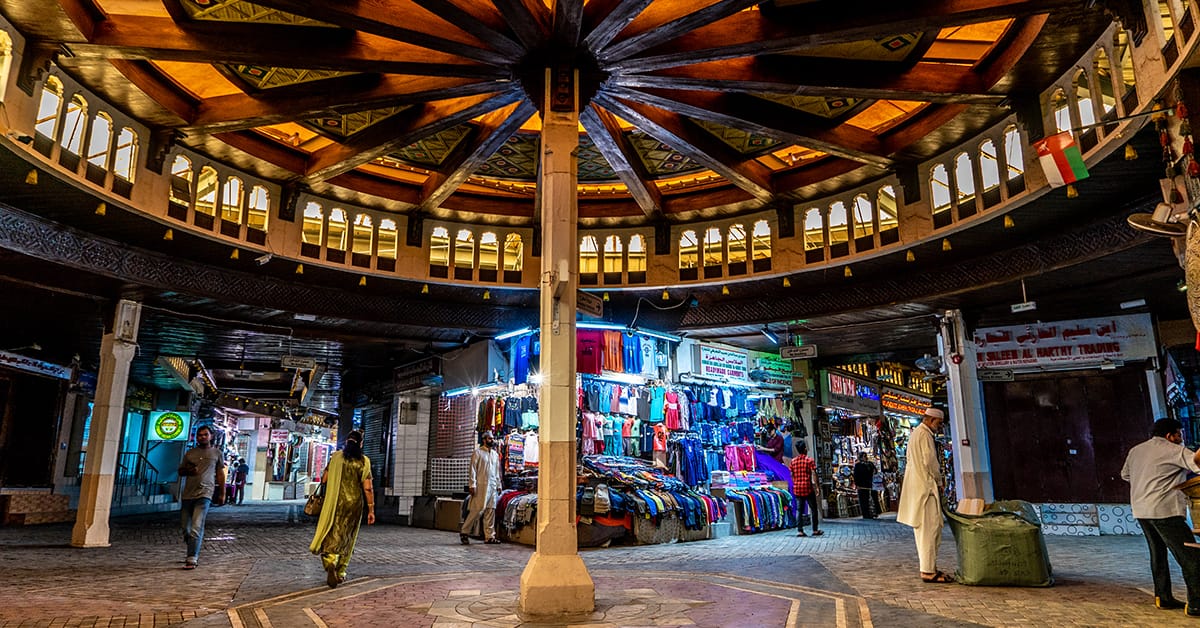After relative success containing Covid-19, Oman looks to gas production and new revenue sources to cure its budget headaches.

|
OMAN: VITAL STATISTICS |
|---|
|
Location: Southeastern Arabian Peninsula |
|
Neighbors: Yemen, Saudi Arabia, United Arab Emirates; maritime borders with Iran and Pakistan |
|
Capital city: Muscat |
|
Population (2021): 5,177,543 |
|
Official language: Arabic |
|
GDP per capita (2019): US$15,343.10 |
|
GDP growth (2019): Est. -0.8% |
|
Inflation (2019): 0.1% |
|
Currency: Omani rial |
|
Investment promotion agency: The Ministry of Commerce, Industry and Investment Promotion |
|
Investment incentives available? Tax holidays in many sectors. No personal income or capital gains tax, but Oman expects to introduce an income tax on high earners in 2022. No restriction on repatriation of profits. Competitive lease rates on a case-by-case basis for certain types of companies established in recognized industrial estates, free zones and other locations, along with incentives including streamlined business registration, processing of labor and immigration permits, assistance with utility connections and lower quota requirements for local hires. |
|
Ease of Doing Business rank (2020): 68 |
|
Corruption Perceptions Index rank (2019): 49 |
|
Political risks: Generally, a stable domestic political environment |
|
Security risks: Domestically, risk of demonstrations; internationally, risk from proximity to war in Yemen; unclear picture of new US administration’s Middle East policies |
|
PROS |
|---|
|
Government attempts to streamline application process |
|
New laws to promote investment |
|
Improvement in rule of law |
|
Strategic relationship with US |
|
Proximity to Saudi Arabia and UAE |
|
Proximity to major international shipping lanes |
|
Access to larger regional markets |
|
CONS |
|---|
|
Protectionist labor policies |
|
Bureaucratic obstacles |
|
Payment delays |
|
Continued reliance on oil revenues and on China |
|
Diminished market competition: Lack of reforms to subsidies and labor markets means continued reliance on debt financing, foreshadowing difficult future choices |
|
Sources: Al-Jazeera, American Enterprise Institute, Bloomberg, CIA World Factbook, Government of Canada Global Travel Advisory, Gulf Times, Heritage Foundation, International Monetary Fund, Oman Observer, Reuters, Transparency International, US State Department, World Bank, World Population Review |
|
For more information, check out Global Finance‘s Oman Economic Report data page. |
Oman has been hit hard by the Covid-19 pandemic, low oil prices and a severely hobbled economy. While all Gulf Cooperation Council (GCC) states have suffered, Oman topped the group with a 9.4% plunge in GDP last year; only Kuwait, with a 7.8% drop, came close.
Three factors kept the situation in the sultanate from deteriorating further, starting with its decision to ramp up gas production.
“Gas is becoming a comparative advantage,” says Atif Kubursi, emeritus professor of economics at McMaster University and former acting executive secretary of the United Nations Economic and Social Commission for Western Asia. He expects opportunities up- and downstream in the sector, post-pandemic.
Another advantage is Oman’s relationship with China, which buys 75% to 85% of the nation’s oil exports and is the world’s largest customer for Omani crude. Finally, Oman handled the pandemic more effectively than many of its neighbors.
Still, Oman and its sultan and prime minister, Haitham bin Tariq Al Said, face an assortment of economic challenges, including $10.7 billion of external debt repayments due in 2021-22, according to Standard & Poor’s.
“It’s going to be difficult,” says Karen Young, resident scholar at the American Enterprise Institute, who studied the Gulf region for 13 years. “He’s done a good job, especially in the 2021 budget, including cutting expenses, particularly in the defense budget, which [the prior] sultan never wanted to do. He’s touched that third rail already, which I think is a good sign.”
A 5% value-added tax is slated to come into force in April and the government continues to discuss an income tax on high earners, according to the Ministry of Finance’s 2020-24 economic plan.
Furthermore, the Ministry of Labor is raising fees for companies that hire expatriates. Yet such measures are not expected to have much impact. Young comments: “The fiscal space is what’s really going to get [them].”
Furthermore, Oman does not have the heft of some of its neighbrs. Other GCC states have national champions: state-run enterprises,” says Young. “They are revenue generators, along with sovereign wealth funds.” Oman’s five sovereign wealth funds are smaller than those in Saudi Arabia, Qatar and Kuwait, and, Young notes, “more aggresive in generating returns on investments.”
Still, Oman offers opportunities in debt restructuring due to an expected rise in insolvencies. State-owned agencies, too, will need refinancing.
A less quantifiable but important risk is Oman’s proximity to Iran, which continues to jockey with Saudi Arabia for power. Kubursi warns: “Oman is not decoupled from this geopolitical risk.”



